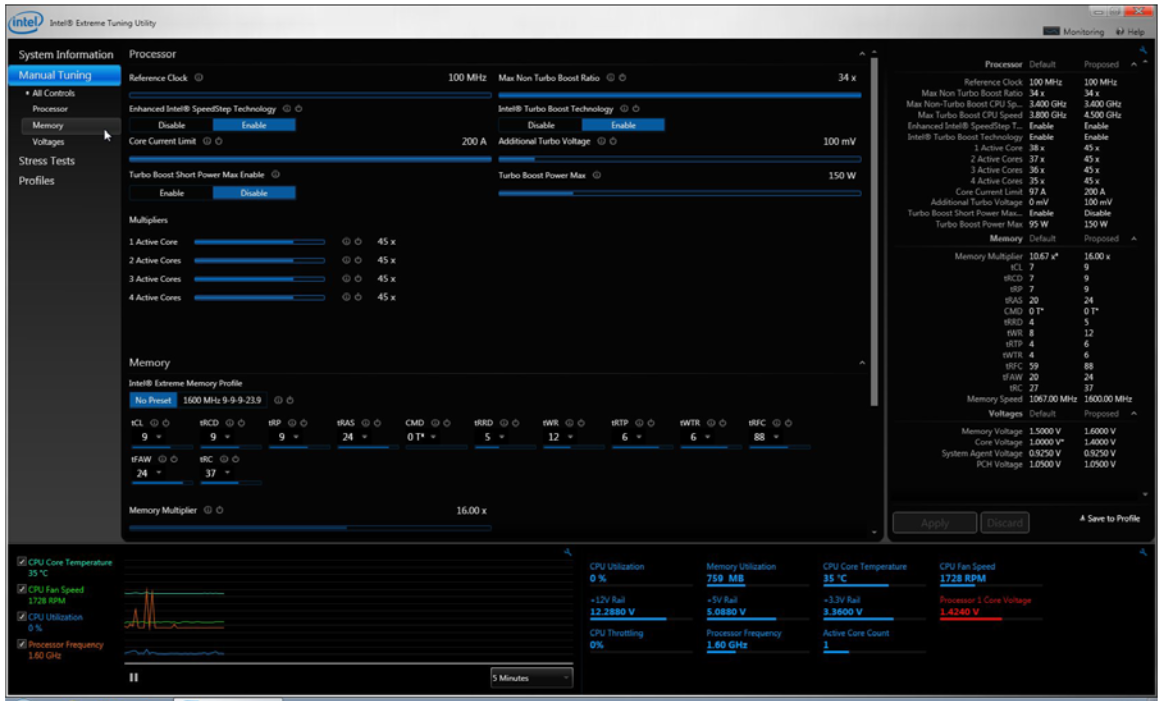
For a CPU to run at faster speeds, it might require more power in order to remain stable, which is where adjusting the Vcore becomes important. the said "fix" will be "guaranteed" to work only for the "list of valid CPUs" which doesn't include your "H" mobile CPU.Another section allows you to adjust the Vcore (Core Voltage).

Yes, the "Core Isolation" is a known issue.īut whenever Intel releases a fix for this (if they plan to do so). there are plenty of (free) tools out there. If you neither have issues nor are interested in doing tweaks, and you just want to monitor behavior, temps, and so. if you're BIOS lacks those settings, complain to the manufacturer. If you don't have any issues and just want to do some tweaks here and there, most BIOS menus have options to do so (when the manufacturer is not cheap and provides a good BIOS UI). Instead of focusing your energy to complain about a tool (that you know is not officially supported for your mobile CPU), you should be talking with the laptop vendor about the issues you have. you just have a laptop with a bad design, or if the design is "high quality", then you have may a "defective one" (you just unlucky). if you try this because of overheating, throttling, power issues, battery draining fast, etc. I never understood the "need" to undervolt a laptop's CPU. When they say "not supported" it doesn't mean that "it is 100% impossible" to do something (like installing an unsupported app on "not valid hardware".), but what it does mean is that there is no guarantee at all from the vendor/manufacturer, developer" and there should be no expectation from the user of having the developer looking into "bugs" on "unsupported scenarios". The fact that you "were able to use xtu somehow with some functionalities" doesn't mean, and never meant that your "H" mobile CPU was supported.


 0 kommentar(er)
0 kommentar(er)
